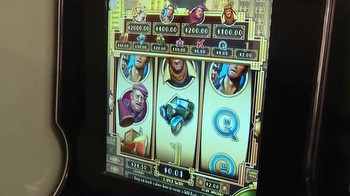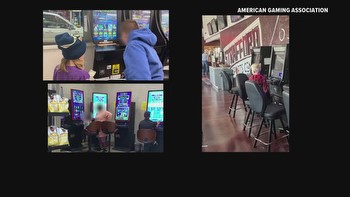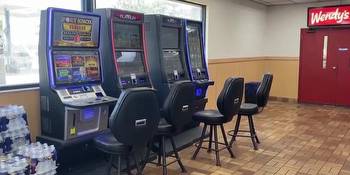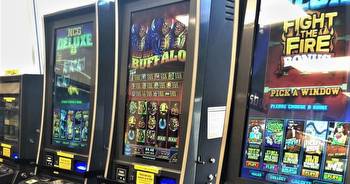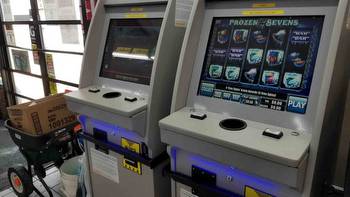If it looks like a slot machine, maybe it is

They come with flashy display screens and names like Gold Illusion and Lady Luck. These machines beep, chirp, whistle and induce a trance-like stare from players who patiently hope for that one jackpot.
To long-time St. Joseph businessman Tom Cobb, they look like slot machines. He’s been saying it for years, and now a judge agrees. That could spell big changes for the 14,000 or more unregulated electronic gaming machines in Missouri bars, truck stops, gas stations and convenience stores.
“When these games started showing up in our area, we knew they were illegal,” said Cobb, owner and president of ACME Music & Vending in St. Joseph. “It was extremely frustrating for a legitimate, honest businessperson.”
For years, these devices occupied a no man’s land between the state’s gambling laws and the law of supply and demand. Missouri statute makes it clear that slot machines are relegated to the state’s licensed riverboat casinos and games of chance are limited to casinos, bingo and the state lottery. The unregulated devices got around regulations with “no chance” or “prereveal” features that indicate whether or not a player would win on the next turn.
To advocates, it’s not gambling if the player already knows the outcome. But the Missouri Gaming Commission tested the devices and found they operated much like a slot machine.
Eric Zahnd, the Platte County prosecutor, said some players ignore the prereveal and others accept the loss in order to keep playing, in effect gambling for a bigger payoff. He filed illegal gambling charges against one electronic gaming company, Integrity Vending of Kansas, after police seized three machines at a convenience store in Parkville, Missouri.
In a ruling last week, Judge Thomas Fincham found the company guilty of promoting illegal gambling, following a bench trial that started in late August. An appeal is expected.
“The technology has changed over the decades but the laws about these no-chance gambling machines date to the early 20th century,” Zahnd said. “It’s clear under Missouri law that these are illegal.”
For Cobb, unregulated gambling machines eroded market share for his long-time St. Joseph business, which provides electronic games like pool, darts and pinball. But he said the proliferation of rogue slots represents a bigger loss because the house winnings don’t go to education and local cities. The payout percentages aren’t subject to regulatory scrutiny and the machines are easier for minors and problem gamblers to access.
“They have effectively siphoned off millions of dollars from the education system,” Cobb said. “There is no tax base on these machines. No one knows what they pay out.”
Unlicensed slot machines cost Missouri education about $50 million in a single year, according to lawmakers examining the issue for a House Special Interim Committee on Gaming in 2019.
Zahnd feels the ruling clarifies some of the confusion over what the House committee refers to as “gray machines.” He said the Legislature could make changes in what kind of gambling is allowed, but he plans to continue enforcing existing laws.
Past efforts to address rogue slot machines in the Legislature got bogged down on multiple fronts, including a proposal to legalize sports wagering and debate on whether the state should remove unlicensed slots or make them legal and collect the tax revenue. In the Platte County case, Zahnd said he went after the device company because there’s still some debate about whether the local convenience stores were duped about the legality.
That could change after the ruling becomes more well-known. Cobb certainly hopes so.
“All the other prosecutors in the state should realize they have a precedent-setting case and these machines should be gone,” he said.
A lawyer for Integrity Vending could not be reached for this story.








